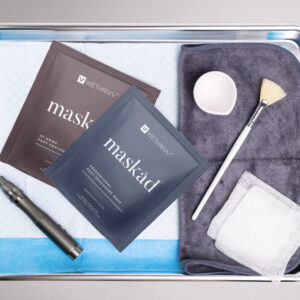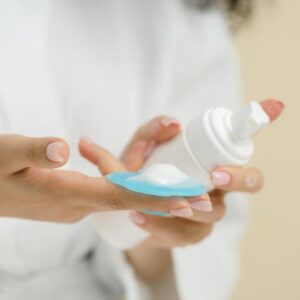
Face Mask Ingredients Explained: The Wonders of Hyaluronic Acid
In the world of skincare, certain ingredients seem to take the spotlight more often than others, and for good reason. Hyaluronic acid (HA) is one of those star ingredients that has become a must-have in the formulation of numerous skincare products, especially facial masks. Known for its incredible ability to hydrate and rejuvenate the skin, hyaluronic acid offers numerous benefits. Here’s a deep dive into what hyaluronic acid is, what it does for your skin, and why it’s a crucial component in your favorite facial masks.
What is Hyaluronic Acid?
Hyaluronic acid is a naturally occurring substance found in the human body, especially in skin tissues and the eyes. It has the capacity to attract and hold vast amounts of moisture—up to 1,000 times its weight in water. As we age, the natural production of hyaluronic acid in our bodies diminishes, which can lead to dehydration and premature signs of aging such as fine lines and wrinkles.
Key Benefits of Hyaluronic Acid in Facial Masks
1. Intense Hydration
Hyaluronic acid’s most notable feature is its ability to enhance skin moisture. When used in facial masks, HA penetrates deep into the skin, providing hydration and making the skin feel smoother and plumper. This is particularly beneficial for individuals with dry or dehydrated skin.
2. Improved Elasticity
By maintaining a balanced moisture level, hyaluronic acid helps improve skin elasticity. This can lead to a more youthful appearance with a noticeable reduction in the visibility of fine lines and wrinkles.
3. Soothing Properties
Hyaluronic acid is also known for its soothing properties. It can help calm irritated skin and reduce redness, which makes it an excellent ingredient for those with sensitive or blemish-prone skin.
4. Antioxidant Defense
Recent studies suggest that hyaluronic acid also has antioxidant properties, which means it can help protect the skin from the damage caused by free radicals and environmental aggressors like pollution and UV radiation.
5. Non-Comedogenic
Unlike some skincare ingredients that can clog pores, hyaluronic acid is non-comedogenic, meaning it hydrates the skin without causing acne or other skin problems.
How to Use Hyaluronic Acid Facial Masks Effectively
To maximize the benefits of hyaluronic acid in facial masks, follow these tips:
- Cleanse First: Always start with a clean face. This ensures that HA can penetrate the skin more effectively without any barriers.
- Regular Use: Incorporate hyaluronic acid masks into your regular skincare routine to maintain hydration levels.
- Follow with Moisturizer: After removing the mask, apply a moisturizer to lock in the hydration and benefits of hyaluronic acid.
Hyaluronic acid is more than just a trend in skincare. Its scientifically backed benefits make it a powerhouse ingredient, particularly in facial masks. Whether you’re looking to boost hydration, improve skin texture, or provide your skin with antioxidant protection, a hyaluronic acid-infused facial mask might just be what you need.





